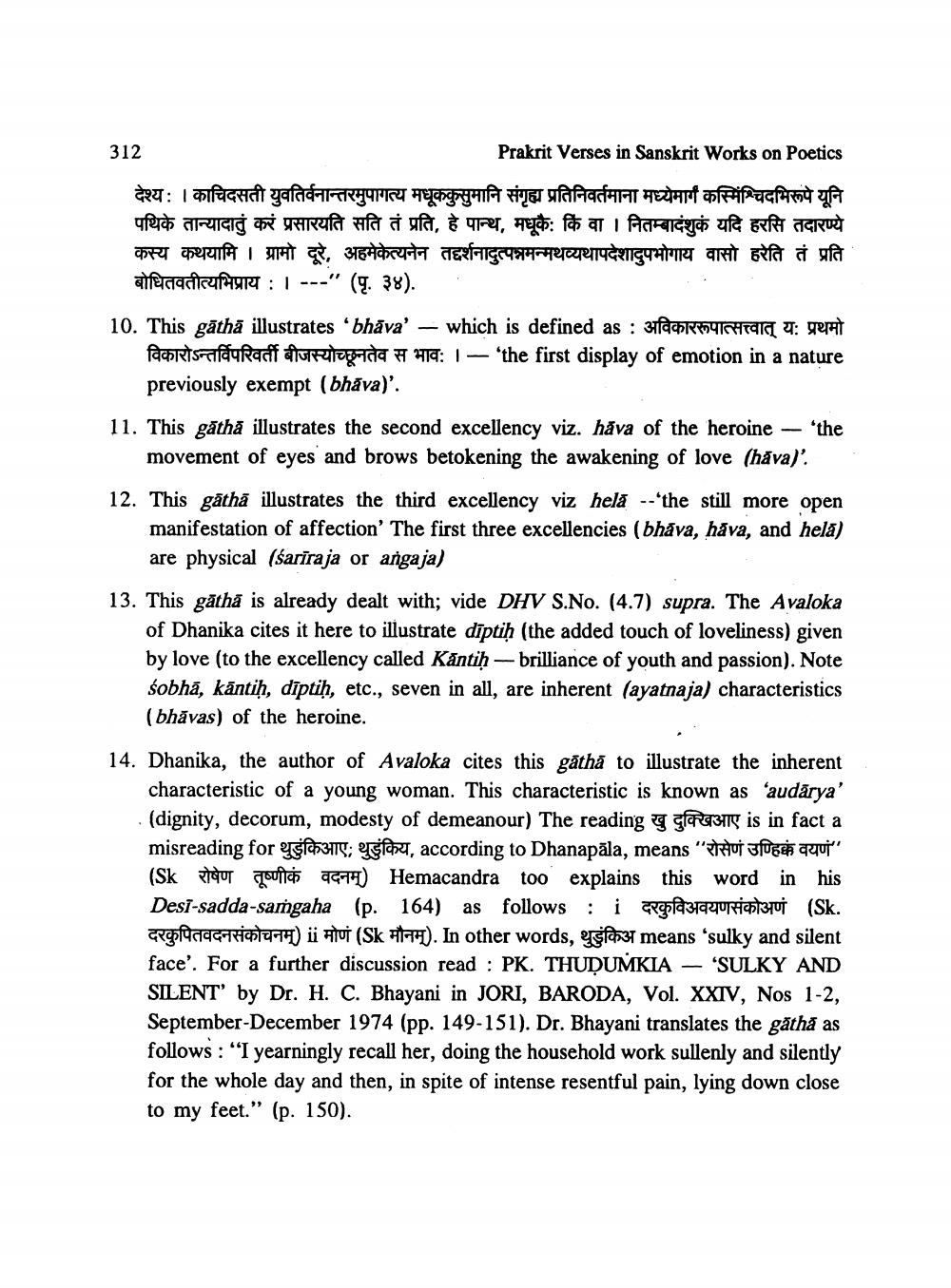________________
312
Prakrit Verses in Sanskrit Works on Poetics
देश्यः । काचिदसती युवतिर्वनान्तरमुपागत्य मधूककुसुमानि संगृह्य प्रतिनिवर्तमाना मध्येमार्ग कस्मिंश्चिदभिरूपे यूनि पथिके तान्यादातुं करं प्रसारयति सति तं प्रति, हे पान्थ, मधूकै: किं वा । नितम्बादंशकं यदि हरसि तदारण्ये कस्य कथयामि । ग्रामो दूरे, अहमकेत्यनेन तदर्शनादुत्पन्नमन्मथव्यथापदेशादुपभोगाय वासो हरेति तं प्रति atfergatitur : 1 ---" (q. 38).
10. This gātha illustrates 'bhāva' - which is defined as : 31fch54ITI u gert
fahrtsafaparf arreda 10: 1 — 'the first display of emotion in a nature previously exempt (bhāva)'.
11. This gāthă illustrates the second excellency viz. hăva of the heroine – 'the
movement of eyes and brows betokening the awakening of love (hava)'.
12. This gātha illustrates the third excellency viz hela --'the still more open
manifestation of affection' The first three excellencies (bhāva, hava, and hela) are physical (śarīraja or angaja)
13. This gātha is already dealt with; vide DHV S.No. (4.7) supra. The Avaloka
of Dhanika cites it here to illustrate diptih (the added touch of loveliness) given by love (to the excellency called Kántiḥ- brilliance of youth and passion). Note sobhā, kāntih, diptih, etc., seven in all, are inherent (ayatnaja) characteristics (bhāvas) of the heroine.
14. Dhanika, the author of Avaloka cites this gāthā to illustrate the inherent
characteristic of a young woman. This characteristic is known as 'audārya' (dignity, decorum, modesty of demeanour) The reading great is in fact a
misreading for थुडुंकिआए; थुईंकिय, according to Dhanapala, means "रोसेणं उण्हिक्कं वयणं' (Sk zout guitas 999) Hemacandra too explains this word in his Desi-sadda-samgaha (p. 164) as follows: i regolazagurrihtatui (Sk. दरकुपितवदनसंकोचनम्) ii मोणं (Sk मौनम्). In other words, थुडुंकिअ means 'sulky and silent face'. For a further discussion read : PK. THUDUMKIA – 'SULKY AND SILENT' by Dr. H. C. Bhayani in JORI, BARODA, Vol. XXIV, Nos 1-2, September-December 1974 (pp. 149-151). Dr. Bhayani translates the gătha as follows: "I yearningly recall her, doing the household work sullenly and silently for the whole day and then, in spite of intense resentful pain, lying down close to my feet." (p. 150).




